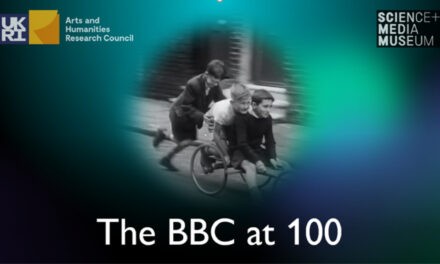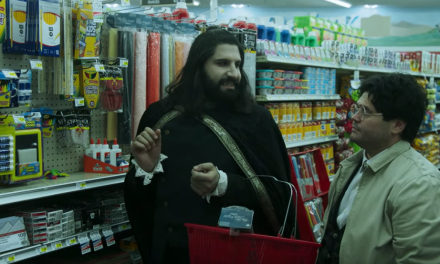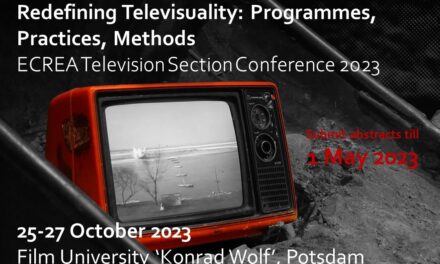Deadline Extended: 20 March 2018.
Television is and always has been changing. The recent shifts, connected to new, online providers creating their own content and offering new forms of distribution, have led to some scholars (Jenners 2016) questioning if the age of TVIV has arrived. While Mareike Jenners remains unconvinced that the transformations are significant enough to warrant such a description, it is nevertheless noticeable that the recent changes affecting television have also had an impact on our subject of television studies.
 For example, Catherine Johnson’s work (2007, 2012) points to how even the transformations brought about by the deregulation and commercialisation of public service broadcasting require us to investigate more strongly aspects of television that pertain to marketing and PR. As others (e.g. Born 2011, Johnson, Kompare and Santo 2014) have shown, these shifts also impact on how television operates as a workplace. In relation to consumption, shifts towards 360-degree commissioning (Mittell 2014) mean that we need to be more aware of the transmedia experiences of audiences (Evans 2011) and their roles as fan-ancers (Hills 2015). Looking at the development of new media and its use, Evans et al. (2017) have shown that our conceptualisations of audiences’ television consumption might be helpful to make sense of their second screen use as well. Outside and inside of national borders, television is morphing into a transnational entity that requires complex negotiations by the different stakeholders involved (Kuipers 2011, 2015). In addition to these industry-led changes, there are those that come from cognisant fields of research: the shift towards high-end drama production, particularly in America, for example, has attracted the attention of a number of film scholars who bring with them different terminologies, while other aspects of television – be that the representation of violence, law, disability, etc. etc. – have a longer history of attracting scholars from other disciplines.
For example, Catherine Johnson’s work (2007, 2012) points to how even the transformations brought about by the deregulation and commercialisation of public service broadcasting require us to investigate more strongly aspects of television that pertain to marketing and PR. As others (e.g. Born 2011, Johnson, Kompare and Santo 2014) have shown, these shifts also impact on how television operates as a workplace. In relation to consumption, shifts towards 360-degree commissioning (Mittell 2014) mean that we need to be more aware of the transmedia experiences of audiences (Evans 2011) and their roles as fan-ancers (Hills 2015). Looking at the development of new media and its use, Evans et al. (2017) have shown that our conceptualisations of audiences’ television consumption might be helpful to make sense of their second screen use as well. Outside and inside of national borders, television is morphing into a transnational entity that requires complex negotiations by the different stakeholders involved (Kuipers 2011, 2015). In addition to these industry-led changes, there are those that come from cognisant fields of research: the shift towards high-end drama production, particularly in America, for example, has attracted the attention of a number of film scholars who bring with them different terminologies, while other aspects of television – be that the representation of violence, law, disability, etc. etc. – have a longer history of attracting scholars from other disciplines.
Keynote Speakers:
In this conference, we are inviting papers that pertain to all aspects of television, but are particularly interested in abstracts that engage with the question of what television scholarship might be or become as a result of these shifts. As a journal, we are interested in all kinds of presentations, including traditional research papers, workshops, roundtable discussions, screenings and posters. Abstracts for individual papers, panels or other forms of communication are welcome on any theme connected to television and television scholarship, though we will give priority to papers engaging with the themes highlighted above. Collaborations and interdisciplinary projects are also of particular interest.
Venue & Abstracts/Deadline:
The conference will take place at Edge Hill University, in Ormskirk, north of Liverpool, UK. It is a residential conference, i.e. accommodation is available on campus. For details about booking and registration, please see the conference website at https://edgehill.ac.uk/media/research/research-events/
Please send abstracts of no more than 500 words by 12pm GMT Friday 16th March 2018 to CSTconference@edgehill.ac.uk.
The conference is a collaboration between Edge Hill University, Critical Studies in Television and the Television Studies Section of the European Communication Research and Education Association (ECREA).







